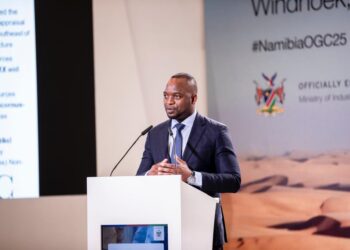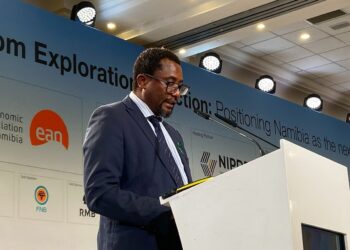
Namibia’s top infrastructure and finance experts have called for stronger regional coordination, harmonised legal frameworks and increased project preparation funding to unlock both national and regional development opportunities.
The call was made during a recent panel discussion hosted by the Namibia Savings and Investment Association (NaSIA), under the theme “Unlocking Namibia’s Infrastructure Future: Mobilising Domestic Savings for Sustainable Growth.â€
Speaking at the event, Government Institutions Pension Fund (GIPF) CEO Martin Inkumbi said Namibia cannot justify large-scale infrastructure investment without regional collaboration and shared use of such infrastructure.
“We cannot expect a country of just over 3 million people to sustain large-scale infrastructure like railways or roads on its own.These assets must be used by our neighbours if we want them to be financially and environmentally sustainable. Without regional integration, we risk building infrastructure that cannot fund or maintain itself,†he said.
Inkumbi proposed the creation of a Southern African Development Community (SADC) infrastructure development fund, suggesting it operate like a regional development bank but with a sole focus on infrastructure.
“It should allow for capital pooling from governments, development finance institutions, and private investors, with the purpose of financing projects that serve the whole region, not just individual countries,†he said.
Eos Capital Managing Director Immanuel Kadhila added that fragmented legal and regulatory frameworks across the region are a major stumbling block to investment.
“If we do not harmonise our legal frameworks around infrastructure and PPPs, investors will continue to hesitate.A common legal approach across SADC would streamline investment processes and remove confusion. Investors want predictability, and we must create that regionally, not just nationally,†he said.
Kadhila also introduced the idea of “infrastructure without borders,†advocating for shared master plans among neighbouring countries.
“It makes no sense for Namibia to build a transport corridor in isolation while Botswana or Zambia develop theirs independently. We need one plan, agreed upon by all involved countries, so that every project adds value to the next and contributes to a regional logistics network,†he said.
Development Bank of Namibia Chief Strategy Officer Heike Scholtz highlighted that many infrastructure proposals are not investment-ready due to lack of funding for early-stage preparation.
“Most infrastructure projects we see are not ready to be funded in their current form.There is often a gap in feasibility studies, regulatory approvals, or technical details. Without sufficient early-stage capital to prepare and de-risk these projects, they simply do not move forward,†she said.
Scholtz also pointed to reluctance among some local developers to collaborate with more experienced international firms.
“There is a tendency among some local developers to hold onto full control of a project, even if that means the project never gets built. They would rather own 100% of a stalled idea than 10% of a fully financed, high-impact infrastructure development. This mentality must change,†she said.
NaSIA CEO Josephat Mwatotele underscored that infrastructure setbacks are often the result of poor intergovernmental coordination rather than a lack of funds.
“We are dealing with infrastructure delays not because the money isn’t there, but because governments are not moving in sync.If we are building a railway from Namibia to Zambia, both sides need to be aligned from day one. Infrastructure must be planned and executed across borders, not within them,†he said.
Mwatotele added that access to capital is not enough. Technical and managerial capacity are also critical to ensuring infrastructure projects succeed.
“When we are trusted with billions in pension or donor funds, there is no room for amateurism. Capital demands a return, and that return is delivered by people who know how to execute. We need to bring in experienced talent and build local capacity to meet those expectations.,†he said.











